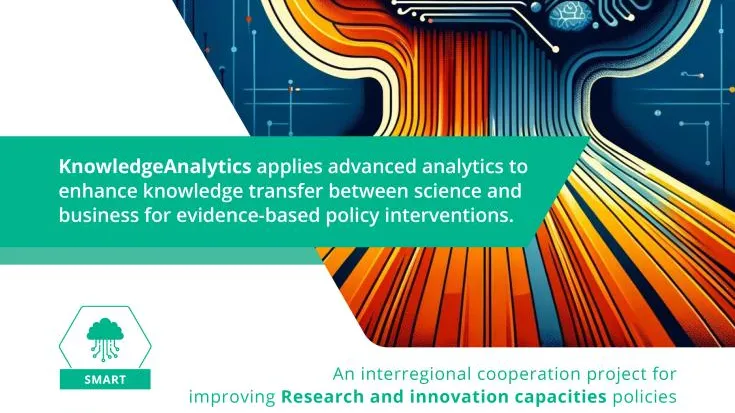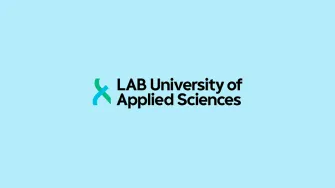Human well-being
KnowledgeAnalytics - Advanced analytics for knowledge transfer monitoring and evaluation

The KnowledgeAnalytics project, spearheaded by LAB University of Applied Sciences, focuses on strengthening regional innovation policies that drive digital transformation in Päijät-Häme. These policies aim to advance digital AI-driven health and well-being innovations by enabling targeted funding and R&D support for joint projects that bring together businesses, universities, and public institutions. A key element of these policies is using advanced analytics and AI to boost knowledge transfer, enabling smarter policies and decision-making to support more efficient collaboration within the digital innovation value chain.
For example, policies and policy instrument (Uudistuva ja osaava Suomi 2021-2027) support collaborative R&D projects where AI-powered analytics are used to analyze healthcare data, leading to the development of preventive care solutions such as AI-driven remote monitoring systems and personalized healthcare tools. These policies and policy instruments help businesses and research institutions co-create and scale innovations, ensuring they are practical and ready for real-world application. This targeted support fosters an ecosystem where health tech solutions, driven by AI insights, can address regional challenges like an aging population and rising healthcare costs, while improving the quality of life and enhancing healthcare services.
For example, policies and policy instrument (Uudistuva ja osaava Suomi 2021-2027) support collaborative R&D projects where AI-powered analytics are used to analyze healthcare data, leading to the development of preventive care solutions such as AI-driven remote monitoring systems and personalized healthcare tools. These policies and policy instruments help businesses and research institutions co-create and scale innovations, ensuring they are practical and ready for real-world application. This targeted support fosters an ecosystem where health tech solutions, driven by AI insights, can address regional challenges like an aging population and rising healthcare costs, while improving the quality of life and enhancing healthcare services.
More information about the project
Project manager
Paula Pusenius
Researcher
paula [dot] pusenius lab [dot] fi
lab [dot] fi
 lab [dot] fi
lab [dot] fiMore information about the project
Project state
On-going
Project area
International
LAB role
Partner
Unit
Health Care and Social Services
Key competence
Human well-being
Location
E-campus
Lahti
Lappeenranta














